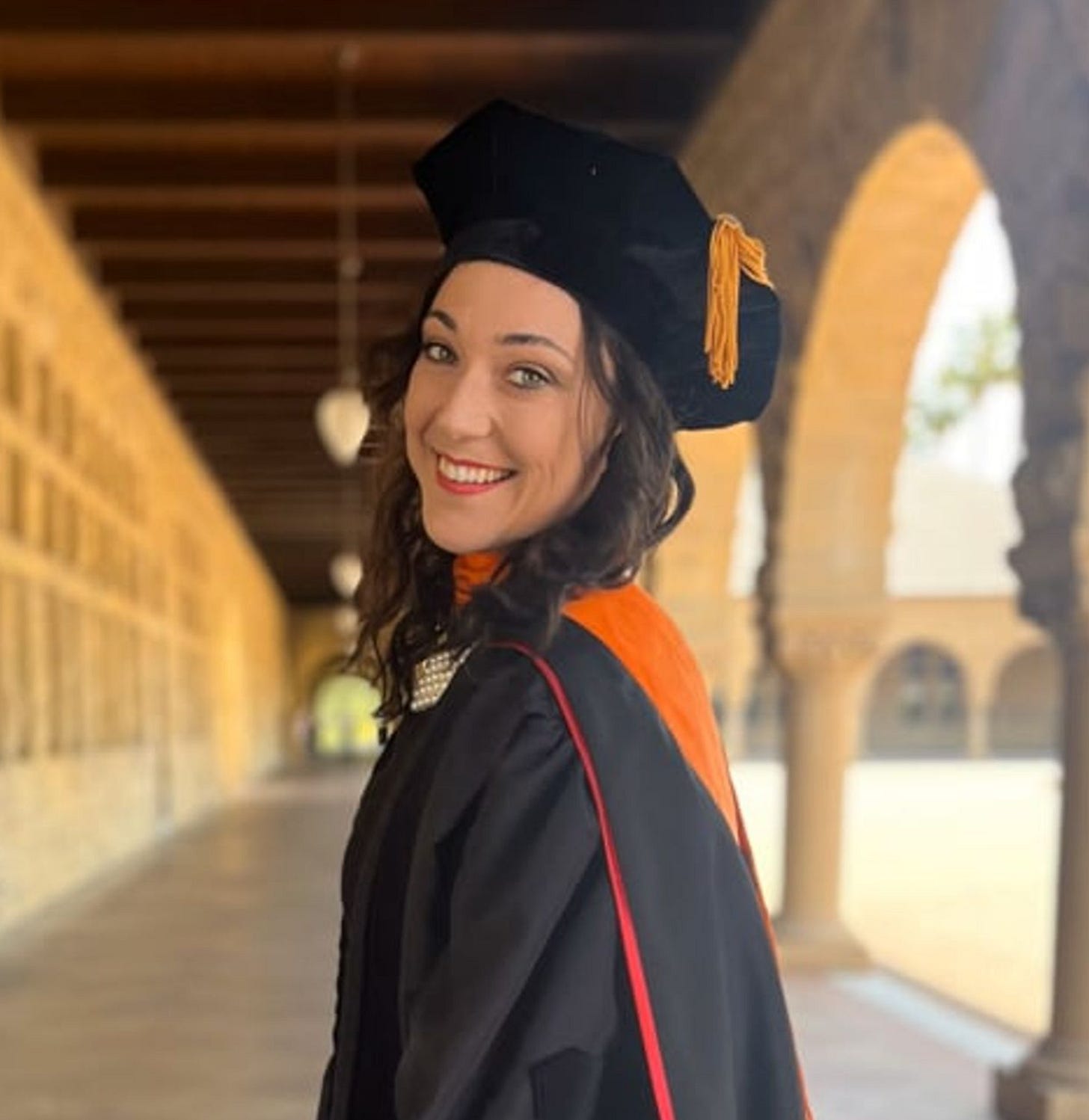Landing an Aerospace Industry Job After Your PhD
Emily’s tips for securing your post-doctorate dream aerospace job
During life’s transitions, every accomplishment seems swiftly met with a new set of challenges. For me, this was earning my PhD in Aeronautics & Astronautics and overlapping its conclusion with an aerospace industry job hunt. As I was polishing final simulation results, working on journal publications, writing my thesis, and organizing my defense, I was also balancing interviewing for my first full-time position. Having now wrapped up this turbulent process by successfully defending my thesis and accepting a dream aerospace job, I offer some tips to streamline this process for you.
Decide on your companies of interest.
Aerospace industry companies can fall into one of three categories: government (e.g., NASA, The Aerospace Corporation), product (e.g., SpaceX, Blue Origin, Aurora), and support (e.g., Siemens, ATA Engineering, Quartus). First, decide which category you want a job in.
From my experience, seeking employment from an aerospace government or support company is more straightforward with a PhD. These roles are typically more geared towards R&D, and most hiring teams already have a majority of Ph. Ds.
Product roles, alternatively, have greater variability; sometimes, teams have a majority of Ph. D.s and a precedent expectation for the success of a Ph. D.-turned-engineer in the role, and sometimes not. I was seeking a product role, so this article speaks more specifically to this journey, but most of the tips still hold for R&D, government, and support aerospace company roles!
Do your research on them.
Once you’ve narrowed down your career contender company list, watch their YouTube channels and visit their websites. This is the fastest way to hear and see what your new career will be like.
Evaluate these companies to ensure they are a good fit for you in terms of company size, variety of products they work on, location, flexibility for remote vs in-person work, etc.
Use your network.
LinkedIn, classmates, other professional organizations, any and all of the above. Call people in your network and have informational interviews about both their role and company to see if they are the right fit for you. If you want to learn more, end each call with: Who is someone you think I should chat with next?
If these calls go well, remember that your contact can likely submit a referral for you which will move you through the interview process faster, and your contact will get a bonus for referring you (win-win!).
Submit applications.
Submit applications directly on employer websites since they will have the most complete job listing for you to assess (or through the recruiter if you got a referral). To find the best role for you at the company, search on their career openings page for keywords/team/product names that interest you.
If you want to leverage your PhD for R&D at the company, search for “research” type keywords (e.g., research, R&D, analyst), as well as specific terms pertinent to your PhD work, such as those used to describe conference sessions you attended (e.g., reduced-order modeling, high-performance computing, conjugate heat transfer).
If you want a product engineering role, search for the product you want to work on (e.g., engines analyst), again key phrases from your PhD work, or general skills from your PhD you want to leverage (e.g., simulation, Python). When I applied for these product engineering roles rather than R&D roles, the value of my PhD was questioned more frequently. Even though my resume emphasized my PhD contributions, technical abilities, and previous industry work and collaborations, I was commonly given the feedback that I appeared to “lack industry experience” because I would be entering the company directly after graduate school rather than from another company. One successful strategy I found to get around this was to apply for roles at or one step below my desired level. This got me to technical interviews faster, after which I could negotiate directly for the higher role I originally wanted with the engineering team rather than the recruiters.
In all cases, use best practices on your resume: emphasize your relevant experience and PhD collaborations within the industry - they want to know you are aware of the difference between a job in industry vs academia/research and can succeed in it; keep your resume to one page; and customize your resume for every job application by using keywords and emphasizing pertinent experiences - I heard back from 100% of applications I submitted using keywords from the job postings.
Prepare for the interview.
The first round of HR interviews will last less than 30 minutes, and you need to show them that you are a low-risk candidate for the role. You want them to leave knowing why you're a good fit for the role and for the company.
For further interviews, you must have a good answer to the questions: Why are you pursuing a career in industry and not academia with your PhD? Why did you earn a PhD if you’re going into industry?
To fight off some of my nerves for the interviews, I had mock interviews with peers, which always helped me feel more confident about the real thing.
Negotiate the offers.
Coming from graduate school, knowing what you can negotiate besides base salary is difficult. The top things to consider are equity (stock options or RSUs), signing bonus, retirement benefits/matching, relocation, remote work days per week, and PTO.
My general tips for negotiations are to start with the base salary. In preliminary interviews, you will be asked for a salary you expect - do not answer with a number. Instead, say something more like “I need to learn more about the role, team, and current compensations for members with my skillset.” In final negotiations, feel free to express ranges you feel are appropriate.
Next, I would negotiate equity or a signing bonus. To learn more about equity negotiations, check out this article from the Harvard Business Review.
Lastly, a great strategy during negotiations is to have other job offers on the table. I’ve had several peers successfully leverage alternative offers to gain higher salaries and compensation - but know that you will likely need to send them the offer to confirm your claims!
Good luck!
Remember: they are interviewing you, but you are also interviewing them. Always remember your worth and accept a role that makes you proud. You’ve done amazing, hard things to get to the point of earning your doctorate, and you will continue to achieve greatness in industry (or beyond) wherever you decide to go!
Ad astra!
About the author
Dr. Emily Jewell is a 2024 PhD graduate from the Stanford University Department of Aeronautics & Astronautics. She is passionate about aerospace, analysis, CFD, FEA, ML, and her communities. She will be a Fluid Systems Engineer at Blue Origin in Seattle, WA, where she will perform design and analysis for the first stage of New Glenn. LinkedIn.






